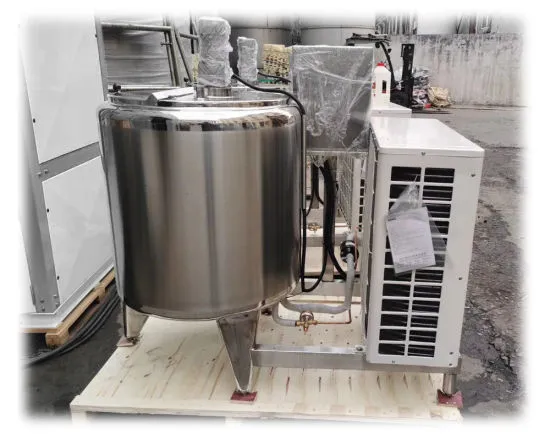- January 17, 2024
- Posted by: VisionPlus Automation
- Category: Milk pasteurizer

How milk pasteurizer brings value to the milk industry in Kenya
How milk pasteurizer brings value to the milk industry in Kenya
A milk pasteurizer brings significant value to the milk industry in Kenya by enhancing the safety, quality, and shelf life of milk. Here are key ways in which a milk pasteurizer contributes value:
1. Pathogen Elimination:
Food Safety: Pasteurization involves heating milk to a specific temperature for a defined period, effectively eliminating harmful bacteria, viruses, and other pathogens. This process enhances the safety of milk products, reducing the risk of foodborne illnesses.
2. Extended Shelf Life:
Microbial Spoilage Prevention: Pasteurization not only eliminates harmful microorganisms but also reduces the overall microbial load, slowing down spoilage. This extension of shelf life allows for efficient distribution and minimizes product waste.
3. Quality Preservation:
Nutrient Retention: Pasteurization is a relatively mild heat treatment that helps preserve the nutritional content of milk. Essential vitamins and minerals are retained, ensuring that consumers receive a product with optimal nutritional value.
Flavor Stability: Pasteurization helps maintain the natural flavor of milk by preventing the development of off-flavors associated with spoilage.
4. Regulatory Compliance:
Quality Standards: The use of a milk pasteurizer enables dairy producers to meet and exceed regulatory standards for milk safety and quality. Adherence to these standards is essential for consumer protection and market access.
5. Market Access and Consumer Confidence:
Wider Distribution: Pasteurized milk has a longer shelf life and can be distributed over greater distances. This widens the market reach, allowing dairy producers to supply milk to regions that may be geographically distant.
Consumer Trust: The pasteurization process is well-known and trusted by consumers as a standard for ensuring the safety of milk. This builds consumer confidence in the product.
6. Diversification of Products:
Value-Added Products: Pasteurization enables the production of a variety of value-added milk products, such as flavored milk, yogurt, and other dairy derivatives. This diversification can contribute to increased revenue for dairy businesses.
7. Reduced Economic Losses:
Prevention of Spoilage: By preventing spoilage and extending the shelf life of milk, a pasteurizer reduces economic losses associated with unsold or wasted products. This is especially crucial in a market where timely distribution may pose challenges.
8. Health and Hygiene Benefits:
Reduced Health Risks: Pasteurization contributes to public health by reducing the risk of milkborne illnesses. This is particularly important in regions where access to healthcare may be limited.
9. Technological Integration:
Efficiency and Automation: Modern pasteurizers often come with technological features that enhance efficiency and automation. This not only streamlines the pasteurization process but also contributes to overall operational efficiency.
In summary, a milk pasteurizer is a critical tool in the dairy industry that adds substantial value by ensuring the safety, quality, and longevity of milk products. Its contribution to food safety, regulatory compliance, and market access makes it an indispensable asset for dairy producers in Kenya and contributes to the growth and sustainability of the milk industry.
